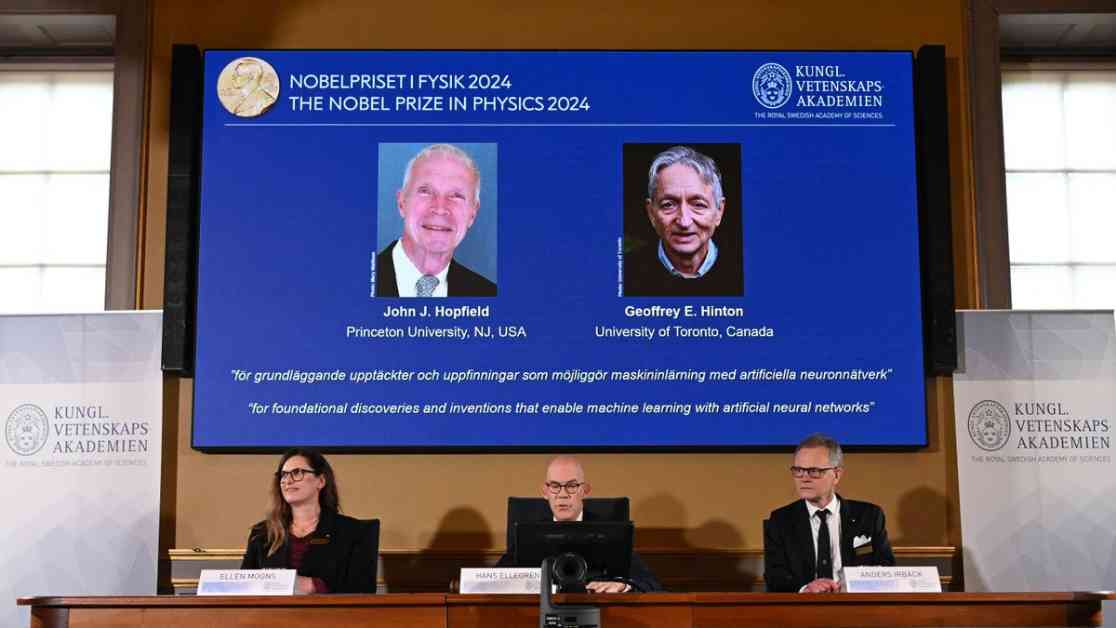The Nobel Committee for Physics recently announced the winners of the 2024 Nobel Prize in Physics, John Hopfield and Geoffrey Hinton. These two scientists have been recognized for their groundbreaking work in artificial intelligence (AI) and neural networks, which have paved the way for many of the advancements we see in AI technology today.
Hopfield, a professor at Princeton University, is credited with creating an associative memory network known as the Hopfield network in 1982. This network has the ability to save and reconstruct images and patterns from imperfect data. Hinton, a computer scientist at the University of Toronto, built upon Hopfield’s work and developed the “Boltzmann machine” in the early 2000s. This machine uses neural networks to spot patterns in data, enabling it to classify images and create new examples based on the patterns it was trained on.
The work of these two scientists has been instrumental in the development of machine learning, which has led to a surge in new AI technologies and applications. Artificial neural networks are now being used in a wide range of fields, from developing new materials with specific properties to improving productivity and healthcare.
Hinton, in a statement at a news conference, expressed his surprise and excitement at receiving the Nobel Prize, noting that machine learning will have a significant impact on society, comparable to the industrial revolution. He highlighted the benefits of AI technology, such as advancements in healthcare and increased productivity, but also emphasized the need to be cautious of potential negative consequences, such as the threat of these technologies getting out of control.
The shift towards deep learning networks, which use layers of artificial neurons and large amounts of data to mimic processes in the human brain, represents a significant advancement in AI research. While deep learning has been around since the 1980s, recent advances in computing power have accelerated its development and application.
Overall, the work of John Hopfield and Geoffrey Hinton has revolutionized the field of AI and laid the foundation for many of the technologies we rely on today. As we continue to explore the possibilities of artificial intelligence, it is important to consider both the benefits and risks associated with these powerful technologies.




